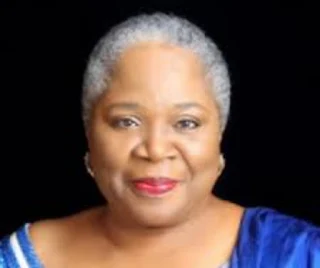Tribute to Onyeka Onwenu: The Queen of African Soul Music
The world of music, art, and activism mourns the loss of Onyeka Onwenu, a legendary Nigerian singer, songwriter, actress, and human rights advocate who passed away on the night of July 30, 2024, at the age of 72. Her untimely death, which occurred after a performance at the birthday celebration of Stella Okoli, the owner of Emzor Pharmaceuticals, has left a void in the hearts of many who admired her talent and contributions to society.
Born on January 31, 1952, in Arondizuogu, Imo State, southeastern Nigeria, Onyeka Onwenu was raised in Port Harcourt, Rivers State. She was the youngest daughter of Nigerian educationist and politician D. K. Onwenu, who tragically passed away when she was just four years old. Despite the early loss of her father, her mother, Hope Onwenu, raised five children with remarkable strength.
Onyeka Onwenu was a woman of immense intellect and talent. She earned a BA in International Relations and Communication from Wellesley College in Massachusetts and an MA in Media Studies from The New School for Social Research in New York. Her career began at the United Nations as a tour guide, but her passion for her homeland led her back to Nigeria in 1980 to complete her National Youth Service Corps (NYSC) with the Nigerian Television Authority (NTA) in Lagos.
As an NTA employee, Onyeka Onwenu made significant strides as a newsreader and reporter. In 1984, she wrote and presented the internationally acclaimed BBC/NTA documentary "Nigeria: A Squandering of Riches," which became a definitive film on corruption in Nigeria and highlighted the Niger Delta's struggle for resource control and environmental preservation.
Onwenu's versatility extended beyond journalism. She was a beloved TV presenter, hosting shows such as "Contact" (1988) and "Who's On?" (1993) on NTA Network. Her contributions to the arts were recognized when she served as Chairperson of the Imo State Council for Arts and Culture and was later appointed the Executive Director/Chief Executive Officer of the National Centre for Women Development by President Goodluck Jonathan in 2013.
Onyeka Onwenu was not only an artist but also a politician. She was a member of the People's Democratic Party and contested twice for the Local Council Chairman of Ideato North Local Government Area of Imo State. Despite not winning the elections, she remained a dedicated public servant and cultural ambassador.
Throughout her life, Onwenu was known for keeping her personal life private. She was a mother to two children, Tijani Charles and Abraham, and often refrained from disclosing details about her ex-husband, a Yoruba Muslim. Her dedication to her family and her career was evident in every aspect of her life.
I had the honor of organizing a talent hunt and immediately contacted Ms. Onyeka Onwenu to be one of the judges. Without much hesitation, she agreed, demonstrating her unwavering support for nurturing new talent. Her sudden passing is a stark reminder of life's fleeting nature, and her absence will be deeply felt.
Onyeka Onwenu's legacy extends beyond her musical achievements. She was a human rights and social activist, advocating for justice and equality. Dubbed the "Elegant Stallion" by the Nigerian press, she left an indelible mark on the world with her powerful voice and passionate activism.
Her passing highlights the importance of addressing health issues such as high blood pressure, which affects millions of Nigerians annually. Hypertension is technically a heart disease, it is a major contributing factor, and there is a need for effective lifestyle changes and medical care.
Onyeka Onwenu's contributions to music, culture, and social justice will forever be remembered. She was a stallion of strength and talent, who worked with audiences worldwide. As we bid farewell to the iconic Queen of Soul Music, we celebrate her life and the enduring impact she made on the world.
Rest in peace, the Queen of African Soul music, Onyeka Onwenu. Your legacy will continue to inspire generations. Written by Daniel Okonkwo for Profile International Human Rights Advocate
 |
Comments